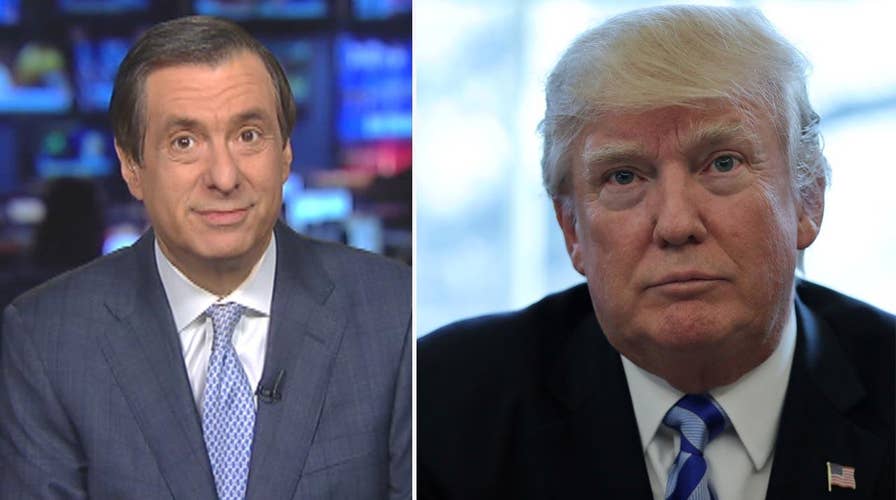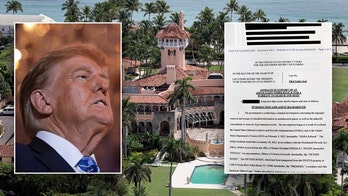Kurtz: Will Trump really battle House conservatives in 2018?
'MediaBuzz' host Howard Kurtz weighs in on Donald Trump's threat to fight the House Freedom Caucus in 2018
It was hardly a well-kept secret that President Trump was ticked off at the most conservative wing of the House GOP for torpedoing his health care bill.
But now he seems to be openly breaking with the hard-line faction.
In a stinging tweet yesterday, the president said: “The Freedom Caucus will hurt the entire Republican agenda if they don't get on the team, & fast. We must fight them, & Dems, in 2018!”
Is that a declaration of war, as some in the media are playing it? A threat to get these 30-plus lawmakers on the Trump train? Or just a moment of social-media venting?
The press loves Republican-on-Republican violence, so this is getting a huge ride.
Donald Trump was never going to be a great fit with the Freedom Caucus. He is not a doctrinaire conservative. He ran on protecting Medicare, Medicaid and Social Security, which is essentially the Democratic position. And he ran on preserving certain aspects of ObamaCare and making sure no one loses their insurance coverage, which was at odds with the conservative position of essentially gutting the program in favor of a free-market approach.
The White House gambled that the Freedom Caucus would compromise on the measure because it’s hard to defy a president of your party on his first major vote. But Mark Meadows and company, believing they were standing up for principle, wouldn’t budge, even after the administration made a couple of key concessions.
So that leaves the president with a stark choice: adjust his agenda to get the most conservative Republicans on board, or marginalize the Freedom Caucus and work with moderate Democrats.
Paul Ryan tried to deflect the remarks, telling reporters that the president was just “expressing his frustration” on Twitter. One caucus member, Justin Amash, suggested that Trump was being a bully, saying such conduct is “constructive in fifth grade.” And he tweeted: “No shame, Mr. President. Almost everyone succumbs to the D.C. Establishment.”
I don’t know whether Trump would carry out his threat—the 2018 election is a long way off—but I think he has limited leverage against the Freedom Caucus. Its members are mainly in very safe conservative districts and are unlikely to be vulnerable to a primary challenge from the left.
But I do know that Trump needs to forge a working majority in the House for tax reform and other upcoming issues. So this is not a one-time dilemma.
National Review Editor Rich Lowry, not a Trump fan, makes some interesting points on what he calls the crisis of Trumpism:
“The product of the Ryan-Trump partnership on health care was a bill bizarrely at odds with a national election Republicans had just won on the strength of working-class voters. Under the GOP replacement, fewer people would have had coverage, and workers further down the income scale would have been particularly hard hit ..."
“Trump is more naturally an ally of the moderate Tuesday Group, except with a flame-throwing Twitter feed. A President Trump acting more in keeping with his free-floating reflex to take care of people, as expressed in speeches and interviews, would have pushed the health bill to the left. But Trump so far hasn’t followed the logic of his own politics in dealing with Congress.”
A Republican president doesn’t want to go too far left, since the Dems won’t give him much help, so it’s a balancing act.
The liberal Huffington Post went with a somewhat incendiary screamer: “TRUMP POURS GAS ON GOP CIVIL WAR.” It may not be an all-out civil war, but right now the guns are drawn.





